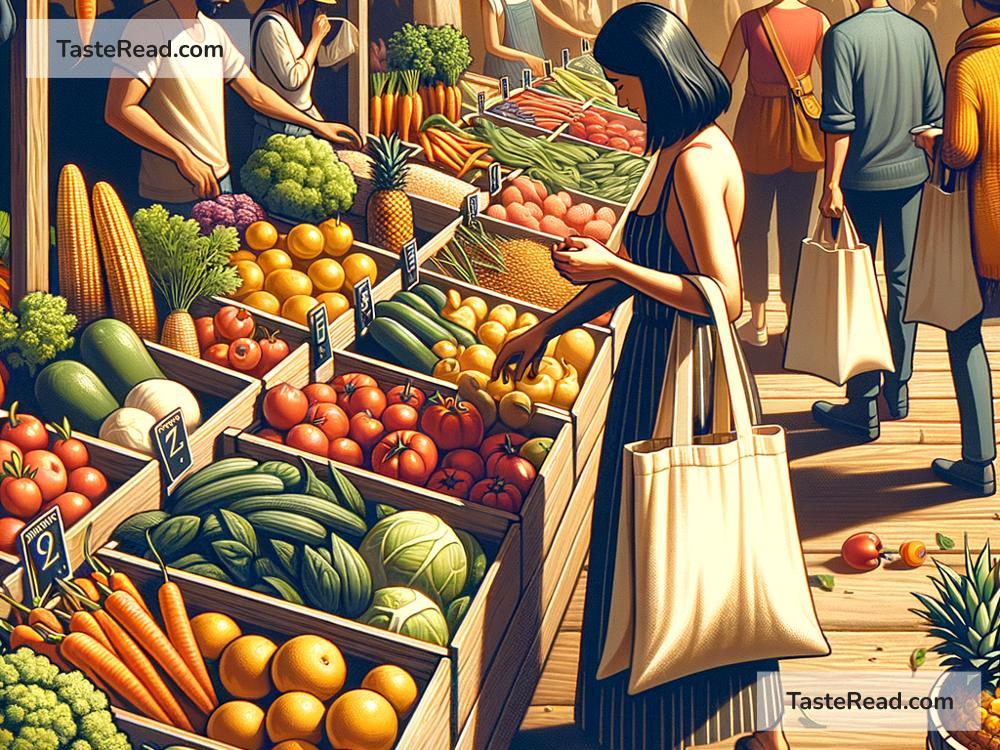Sustainable Food Practices for a Healthier Planet
The food we eat plays an important role in our lives. It gives us energy, helps us stay healthy, and brings people together. But did you know that the way food is grown, processed, and eaten can also impact the health of our planet? Today, more people are talking about sustainable food practices—ways to produce and consume food that are good for the Earth and future generations. In this article, we’ll explore what sustainable food practices mean and how they can make a difference.
What Are Sustainable Food Practices?
Sustainable food practices focus on producing and consuming food in ways that protect the environment, support communities, and ensure future generations can also enjoy healthy and diverse food. This means using fewer resources, reducing waste, and lowering pollution from farming and food production.
For example:
– Growing food naturally: Farmers use fewer chemicals and rely on techniques like crop rotation to keep the soil healthy.
– Reducing waste: Instead of throwing food away, people find ways to use leftovers or compost scraps so they don’t end up in landfills.
– Eating locally: Buying food from farms or markets close to your home reduces the need for transportation, which cuts down pollution.
The goal is simple: to create a food system that works for both people and the planet.
Why Does Food Production Affect the Planet?
Farming and food production can greatly impact the environment. Large farms that grow a single crop, known as monoculture, often use chemical fertilizers and pesticides that harm nearby plants, animals, and water sources. Raising livestock, like cows and chickens, can also create problems. Cattle release methane gas—a greenhouse gas that warms the planet—and raising animals often requires clearing forests for grazing land. These practices can damage ecosystems, pollute the air and water, and increase climate change.
Transportation and packaging also make a difference. Food often travels thousands of miles before it reaches our plates. Shipping food long distances burns fossil fuels, which release carbon dioxide into the air. Plastic packaging, which is often used to keep food fresh, adds to pollution because it takes hundreds of years to break down.
How Can We Practice Sustainable Eating?
The great thing about sustainable food practices is that everyone can take steps to make a difference—even small actions matter! Below are some simple and effective ways to embrace sustainable eating:
1. Eat Seasonal and Local Food
Eating fruits and vegetables that are grown locally and are in season reduces the energy needed to transport food from far away. Plus, local produce is often fresher and tastier! Visit farmers’ markets or look for labels that say “grown locally” to support nearby farms.
2. Cut Back on Meat and Dairy
Producing meat and dairy uses a lot of resources, like land and water, and releases harmful gases into the air. You don’t have to give up burgers and cheese entirely—just try to eat smaller portions or add more plant-based meals to your diet. Beans, lentils, tofu, and mushrooms are delicious and healthy alternatives.
3. Reduce Food Waste
Did you know that a third of all food produced globally is wasted? To avoid wasting food, plan your meals so you don’t buy more than you need. Use leftovers creatively, and freeze foods before they go bad. Composting fruit and vegetable scraps is another great solution because it turns waste into nutrient-rich soil for gardens.
4. Choose Sustainable Brands
Some companies work hard to protect the planet while growing and selling food. Look for brands that use eco-friendly packaging or follow sustainable farming practices. Certifications like “Fair Trade” or “Organic” often mean the company supports responsible food production.
5. Grow Your Own Food
Planting a garden or even growing herbs in a small pot can reduce your carbon footprint. You’ll know exactly where your food comes from and will avoid packaging waste. Gardening is also a relaxing and rewarding activity!
Why Should We Care About Sustainable Food Practices?
You might wonder: Do my choices really make a difference? The answer is yes! When more people adopt sustainable eating habits, it encourages companies and farmers to change how food is grown and sold. Over time, these changes can protect the environment, reduce pollution, and slow down climate change.
Sustainable food practices can also improve health. Eating fresh produce, cutting back on processed foods, and reducing meat can help lower the risk of heart disease, diabetes, and other health problems. It’s a win-win—for you and the planet!
Sustainable Eating Starts with You
Changing the way we eat might seem overwhelming at first, but it doesn’t have to be. Start small. Maybe this week, you try a vegetarian meal or buy local produce. Over time, these choices can add up and make a big impact. Sustainable food practices aren’t just about helping the planet—they’re about creating a healthier, more balanced way of living for everyone.
By making thoughtful choices about the food we purchase and consume, we can help protect the Earth while enjoying tasty, healthy meals. Let’s do our part to create a bright future where everyone has access to nutritious food and a thriving planet. After all, every sustainable bite we take brings us closer to a healthier world.


